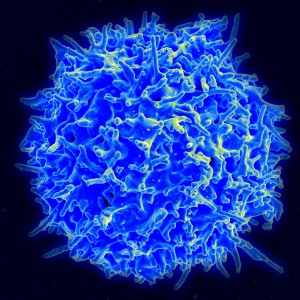MONDAY, 24 NOVEMBER 2014
Inflammation is a normal physiological mechanism of the organism in response to harmful stimuli and to initiate a healing process. Inflammation involves a complex and tightly regulated cascade of immunological events. However, persistent tissue injury or an unusual infectious/environmental stimulus can lead to acute or chronic inflammatory diseases.Researchers from Canada used a chemical mutagen to introduce random mutations into the mouse genome to create a phenotype resistant to Experimental Cerebral Malaria (ECM; a mouse model for neuroinflammation). Subsequently, the researchers screened the entire genome of ECM-susceptible and ECM-resistant mice and discovered that a mutation in the gene Ccdc88b is responsible for the resistance to ECM. Mice carrying this mutated gene show impaired T cell maturation, which is an important feature of inflammatory immune responses. However, the exact mechanism how Ccdc88b affects T cell maturation remains to be elucidated.
Interestingly, the human equivalent of Ccdc88b maps to a locus in the human genome that is associated with an increased risk to develop several inflammatory disorders; suggesting relevance of these findings also for humans.
DOI: 10.1084/jem.20140455
Written by Verena Brucklacher-Waldert.

